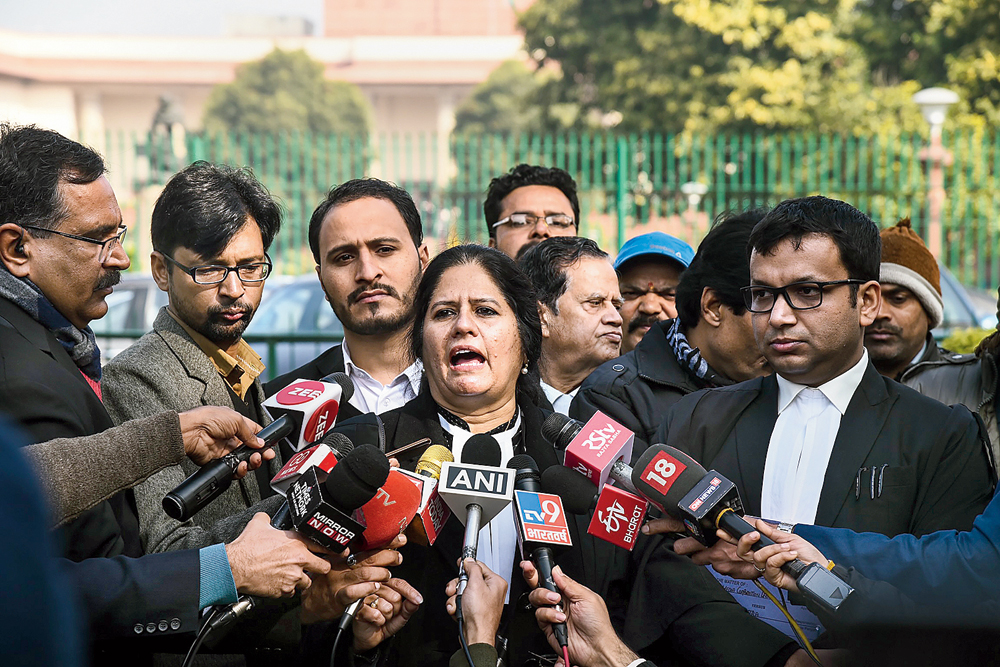The Valley on Friday saw some light at the end of the tunnel after the Supreme Court ordered a review of the five-month-old restrictions, including the Internet ban, and prohibited the imposition of arbitrary, opaque and indefinite curbs.
Many here hoped the judgment would end the 159-day-old Internet blockade — a record for any democracy — and, more important, restore the rule of law in Kashmir.
Imposing Section 144 CrPC, which bans assemblies of more than four people, and blocking the Internet have for years been the government’s tools of choice to prevent protests, but never before has Kashmir witnessed such lengthy restrictions.
The restrictions on movements have gradually been lifted but are re-imposed whenever the government deems them necessary.
Kashmir Chamber of Commerce and Industry president Sheikh Ashiq highlighted the economic cost of the Internet suspension.
“We have already suffered massive losses and pain. We hope the government will restore Internet services after today’s apex court directions,” he said.
“More important, the government may have to give strong reasons before imposing such restrictions in future, which gives us hope that the court order would restore the rule of law here.”
The court has said that in future, the government must reveal all the reasons for imposing Section 144 or suspending telecom services so that people can challenge the move judicially.
Ashiq said the communication blockade and other restrictions have cost Kashmir’s economy thousands of crores of rupees, and tens of thousands their jobs. “There is no section that has not been hurt, but (relief is) better late than never.”
National Conference leader Devender Singh Rana said the court’s “observations are significant and the government must take a call to review and restore the (Internet) connectivity immediately”.
“The restrictions have pushed us to the Stone Age,” he said. “They have taken a high toll on the youth’s pursuit of career advancements…. We hope a restoration (of Internet services) will go a long way in easing the situation.”
Yasir Altaf, a student, said he and his peers had had a gruelling time applying online for the NEET (medical entrance) and other examinations and had to queue for hours at the few centres set up for students to access the Internet.
“We still have our fingers crossed because the government can come up with a pretext to dodge the court directive,” he said.
Many in Kashmir believe that the restrictions on movement and communications are sometimes imposed on mere suspicion of violence, and that the police have the last word on when it’s done and how long it lasts.
Internet services have been blocked unannounced on many occasions, as happened on the evening of August 4, hours before the scrapping of the erstwhile Jammu and Kashmir state’s special status on August 5.
High court lawyer Anwar-ul Islam Shaheen said the imposition of Section 144 had become a pretext to clamp curfew.
“For years we have had this practice in Kashmir — they announce restrictions under Section 144 but what we see is actually a curfew,” he said.
People here believe that curfews are clamped under the garb of Section 144 to avoid bad press but the “undeclared curfews” end up causing a lot of hardship.
An official at a national Internet service provider said that when restrictions were imposed, the organisation never received the communication directly from civil administration officials.
“An SP-rank officer at Cargo (cyber police station) would direct our nodal officer through mail to stop Internet (services),” he said.
A local Internet service provider said his organisation had suffered massive losses and that many people had lost their jobs in the sector.










